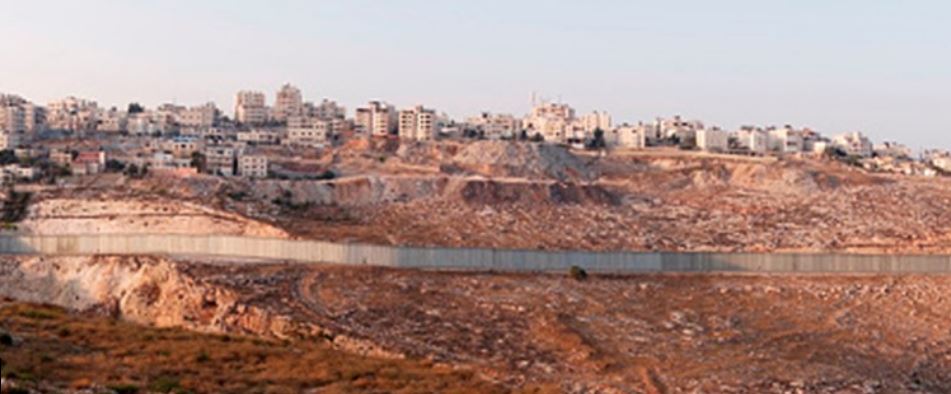Ahead of planned protests in the Occupied Palestinian Territories tomorrow, and in the wake of the deaths of four Palestinian protesters and the injuring of hundreds of others in the last two weeks, Amnesty International is calling on the Israeli authorities to put an end to the excessive force that has been part of its response to demonstrations and clashes resulting from the decision by the US administration to recognize Jerusalem as the capital of Israel.
“Israeli authorities must stop using excessive force against protesters once and for all. The fact that live ammunition has been used during protests in Gaza and the West Bank is particularly shocking. Under international human rights law lethal force can only be used when lives are at imminent risk, which clearly was not the case in the examples we have documented,” said Philip Luther, Research and Advocacy Director for the Middle East and North Africa at Amnesty International.
“Respect for the right to peaceful protest is an obligation binding on Israel and, even where violence erupts, the Israeli security forces must use the minimum force necessary to address it, while allowing peaceful marches and demonstrations to continue.”
Over the last two weeks, four Palestinians, three in the Gaza Strip and one in the West Bank, have been killed by the Israeli authorities during demonstrations and ensuing clashes. Figures issued by the Palestinian ministry of health indicate that more than 3,000 others have been injured and, according to the Palestinian Prisoners’ Club, more than 400 have been arrested.
Israeli forces have used tear gas and rubber-coated bullets at a number of demonstrations, sometimes in response to protesters throwing stones and, in the case of the West Bank, Molotov cocktails. Particularly alarming has been the Israeli army’s use of live ammunition against Palestinian protesters in Gaza during demonstrations at or near the fence that separates the Strip and Israel. One of those killed was 29-year-old Ibrahim Abu Thuraya, who was shot in the head by a soldier on 15 December. At the time he was shot, he was sitting with a group of young protesters near Nahal Oz, a heavily militarized area, where barbed wire separated them from the Israeli army, positioned approximately 15 metres away. According to eyewitnesses, Ibrahim Abu Thuraya, who was wheelchair-bound after losing both his legs in an Israeli air strike in 2008, was waving a Palestinian flag and chanting slogans. He was in possession of a slingshot, which he did not use. Israeli military investigations have concluded there were “no moral or professional failures” identified in this killing.
The other two Palestinian protesters killed in the Gaza Strip were Mahmoud Abdelmajid al-Masri on 8 December and Yasser Naji Sukkar on 15 December. The fourth Palestinian protester killed – in the West Bank – was Basel Mustafa Ibrahim, also on 15 December.
“There’s no denying that Palestinian demonstrators in Gaza threw stones at Israeli soldiers, but it’s hard to believe how any of them posed an imminent danger to the lives of well-equipped soldiers protected by concrete blocks,” said Philip Luther.
“The Israeli authorities have consistently refused to investigate killings of Palestinians by Israeli soldiers or police or at least not done so to international standards. As long as Israeli officers are not held to account for abusing their powers, the pattern of unlawful killings will continue, and Palestinians will be denied their right to peaceful protest without fear of injury or death.
“If further bloodshed is to be avoided as these demonstrations continue, the Israeli authorities must properly investigate all incidents in which arbitrary and otherwise abusive force appears to have been used and bring those suspected of being responsible to justice. This is all the more important when serious injury and loss of life are involved. Israel must also reform its investigation systems to ensure their impartiality and independence. A failure to do so will only perpetuate years of impunity.”
Three other Palestinians, two armed group members and one civilian, have been killed as a result of Israeli air strikes in the Gaza Strip in retaliation for rockets fired by Palestinian armed groups. The air strikes targeted a military site used by Hamas in Beit Lahya, in the north of the Gaza Strip. Another Palestinian was killed in al-Bireh in the West Bank on 15 December by Israeli soldiers who said he had attempted to stab one of them.
Background
US President Donald Trump’s recent decisions to recognize Jerusalem as the capital of Israel and to move the US embassy there from Tel Aviv has caused widespread condemnation and protest in the Occupied Palestinian Territories and around the world.
This decision has implied a “unified” Jerusalem and implicitly recognized the illegal annexation of East Jerusalem in disregard of the mass violations of Palestinian human rights resulting from Israel’s annexation policies.
Israel’s illegal annexation of occupied East Jerusalem was formalized in domestic law in 1980. It has been repeatedly condemned by the international community through various UN Security Council resolutions.
For more than 10 years, Gaza’s 2 million residents have been subjected to collective punishment as a result of Israel’s illegal blockade. Between October 2015 and September 2016, Amnesty International documented the killings of 21 protesters in Gaza, including a 10-year-old child.






















